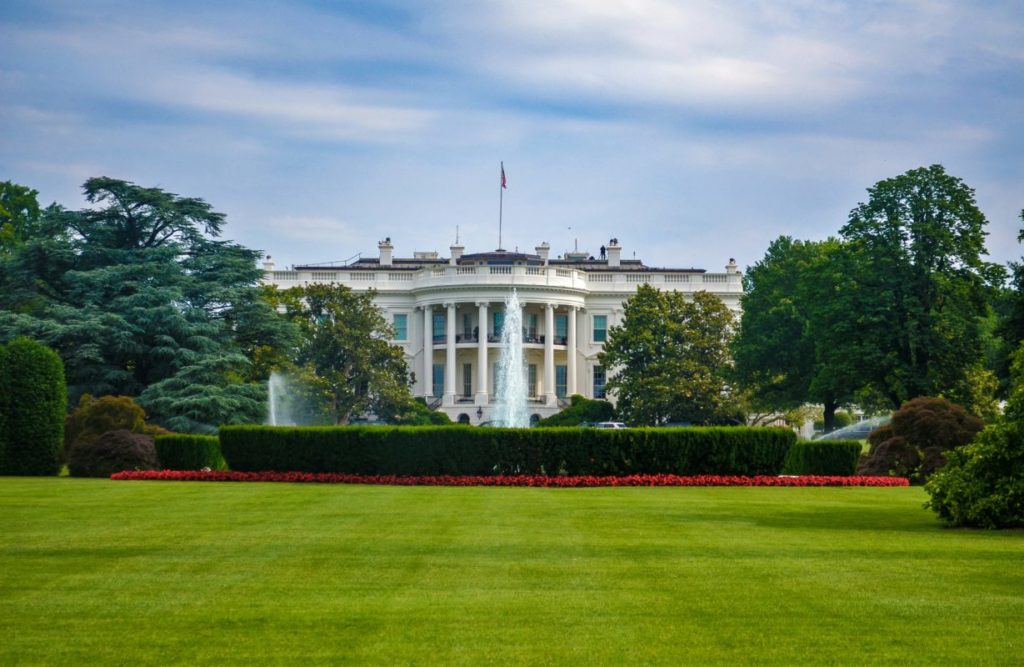
The Biden administration is expected to lift a trade tariff exemption for bifacial solar modules imported to the US, according to a report from Reuters.
Citing two sources familiar with the White House, Reuters reported that the Biden administration would reverse a two-year old trade exemption for bifacial modules, which represents nearly 90% of PV module imports.
Try Premium for just $1
- Full premium access for the first month at only $1
- Converts to an annual rate after 30 days unless cancelled
- Cancel anytime during the trial period
Premium Benefits
- Expert industry analysis and interviews
- Digital access to PV Tech Power journal
- Exclusive event discounts
Or get the full Premium subscription right away
Or continue reading this article for free
According to Reuters, Korea-based solar manufacturer Hanwa Qcells, with the support of seven other companies – First Solar, Heliene, Suniva, Silfab, Crossroads Solar, Mission Solar and Auxin Solar – sent a request to the US Trade Representative on 23 February to revoke the exemption on bifacial solar modules.
Qcells is among a select few companies that have announced the establishment of more than module capacity in the US with a fully integrated US solar manufacturing supply chain, from ingots to modules. Back in January 2023, the company said it planned to invest US$2.5 billion to establish its vertically integrated plant, located in the southeastern US state of Georgia.
In February 2022, US president Joe Biden extended tariffs on solar imports to the US by four years, although bifacial panels were exempted. At the time, the decision was welcomed by trade association the Solar Energy Industries Association (SEIA) noting that bifacial panels produced by US manufacturers were still not available “at scale”. That same year, Biden waived tariffs on solar imports from Southeast Asia for two years, which is set to end in June 2024.
The report from Reuters comes mere weeks after two US senators – Jon Ossof and Reverend Raphael Warnock – urged the Biden administration to lift the exemption – under Section 201 of the Trade Act of 1974 – in order to support the domestic solar manufacturing industry.
Calls to increase tariffs
Both senators – along with senators Marco Rubio and Sherrod Brown – were also advocating for increasing tariffs on Chinese-made wafers, cells and PV module imports earlier this year.
During a recent trip to China, US secretary of the Treasury, Janet L. Yellen did not rule out protective measures to combat the overcapacity of solar PV and energy storage manufacturing in China. Earlier this month Yellen said that the Biden administration “takes resiliency of supply chains seriously” and that trade and investment with China “needs to be on a level playing field”.
Following Yellen’s trip to China, trade coalition the Solar Energy Manufacturers for America (SEMA) called the Biden administration to “act immediately” and “aggressively” in order to “re-balance the playing field and end the destructive race to the bottom we are currently in with importers.”
Moreover, SEMA also called for an update of the guidance for the domestic content bonus credit established in the Inflation Reduction Act.
In a conversation with PV Tech Premium last December, Giovanni Bertolino, head of 3Sun USA highlighted the importance of policy implementation and tariffs such as the Uyghur Forced Labor Prevention Act (UFLPA), Section 201 or Section 301 in the US has catalysts to help the domestic solar manufacturing industry to be built. “If there weren’t those restrictions in place, the IRA on itself would not be sufficient,” said Bertolino.






